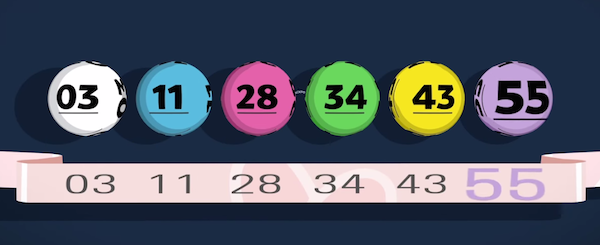This week, it was announced that from October the UK’s National Lottery, currently operated by Camelot and already providing a veritable Merlin’s cave of probability lessons for maths teachers, will be changing the rules for its main ‘Lotto’ draw. The main changes are that a new £1m prize will be added to the raffle element you didn’t know already happens, and that matching two balls will win a free ‘lucky dip’ ticket in the subsequent draw. The fixed £25 prize for matching three balls remains on the round table (even though it sometimes causes hilarious number gaffes).
But the Sword of Damocles hanging over Camelot’s changes is that there will be an extra ten balls to choose six from (59 instead of 49), dramatically lengthening the odds of winning all of the pre-existing prizes. This is our round-up of the media’s coverage of this mathematical “news”.
Here at the Aperiodical, we like to cover the hard-hitting questions people are demanding the answers to. Our extensive research – watching and screengrabbing the press release video, below – reveals that the balls bearing numbers 50-59 will be coloured PURPLE (pale lilac/heliotrope). Ok, fine, the maths stuff.
Various media outlets have weighed in on the new odds, although many are disappointingly willing to simply rehash Camelot’s press release with its unsurprisingly upbeat view of their “enhancements”. Others are more willing to put the sword in Camelot’s stone – everyone seems very angry that the expected return on your £2 stake has gone from around 45% to around 45%. At one point the Independent uses the phrase “so-called ‘Millionaire Raffle’,” like that’s not just exactly what it is.
It’s interesting to compare which newspapers are willing to state the mathematical facts of the new odds directly, and which were only willing to hedge and attribute the immutable nature of numbers to the opinions of various roped-in statisticians. The Guardian’s main article is willing only to stipulate that “statisticians suggest” the new jackpot odds are 1 in 45m; later quoting a somewhat more forceful assertion from “statistician Robert Mastrodomenico” that the odds “would increase to precisely one in 45,057,474″.
The Evening Standard’s piece also ascribes this combinatorial certainty to Mastrodomenico, while the coverage in the Daily Express corrals “lottery expert Professor Ian Walker”, and in the Daily Mail article “statistics lecturer David Hodge” is called in to distance the paper from having to put provable truths directly on record. The prize for best hedge maze goes to the article in the FT, which in addition to badly garbling the new rules, goes only as far as saying “The Guardian reports statisticians believe” what the new jackpot odds will be, an impressive third order distancing from stating a high-school probability fact.
The Times (£) and BBC online are creditably willing to stake their reputations on the correctness of the binomial theorem and simply report the new odds rather than launder them through the mouths of the nearest PhD-holder.
Persistent Aperiodical-hassler Matt Parker’s piece in the Guardian really burns Camelot’s cakes, by pointing out the charming if Bayesianly-questionable fact that under the new odds, “as a UK citizen, it’ll be more likely that Prince Charles is your dad than you choosing winning lottery numbers.” and muses on the real motivations of lottery players, which he controversially suggests may not be the dispassionate maximisation of their expected financial returns.
And finally, some more interesting maths analysis: statistician and Only Connect winning team member Michael Wallace has tried to untie Camelot’s Gordian Knot in his article for stats mag Significance by tackling the sticky question of exactly where those ‘free’ lucky dip tickets are coming from – if they’re being ‘paid for’ out of the prize fund, rather than generated separately and entered without it taking any money, how does that affect the game?
More information
Changes to Lotto, at the National Lottery website
New Prize Structure (including all the odds), at the National Lottery website
It could be you? Perhaps, but lottery success just got more complicated, at Significance Magazine
You’re still not going to win the lottery. But you might have more fun not doing so, by Matt Parker at The Guardian CiF
Camelot: Lotto changes ‘will make more millionaires’, on the BBC website
Fury over National Lottery ‘rip-off’: Chance of winning jackpot is now 45 million to one, at The Daily Express
It could be you (but probably won’t be) as Camelot revamps National Lottery, at The Guardian
National Lottery adds ten more balls, at The Evening Standard
Why you will soon be twelve times more likely to be eaten by a shark than win the lottery… but it won’t stop JAMES DELINGPOLE playing!, at The Daily Mail
Odds of winning the lottery improve: now it’s just 1 in 10 million, at The Times (£)
Since You Asked: Camelot’s logic not likely to make you a millionaire, at the Financial Times
